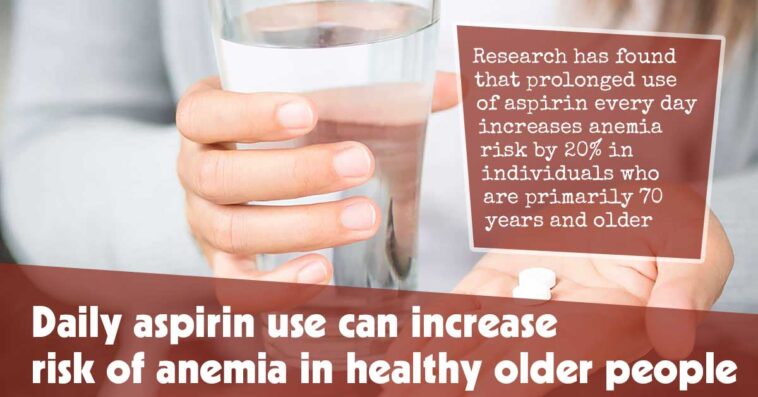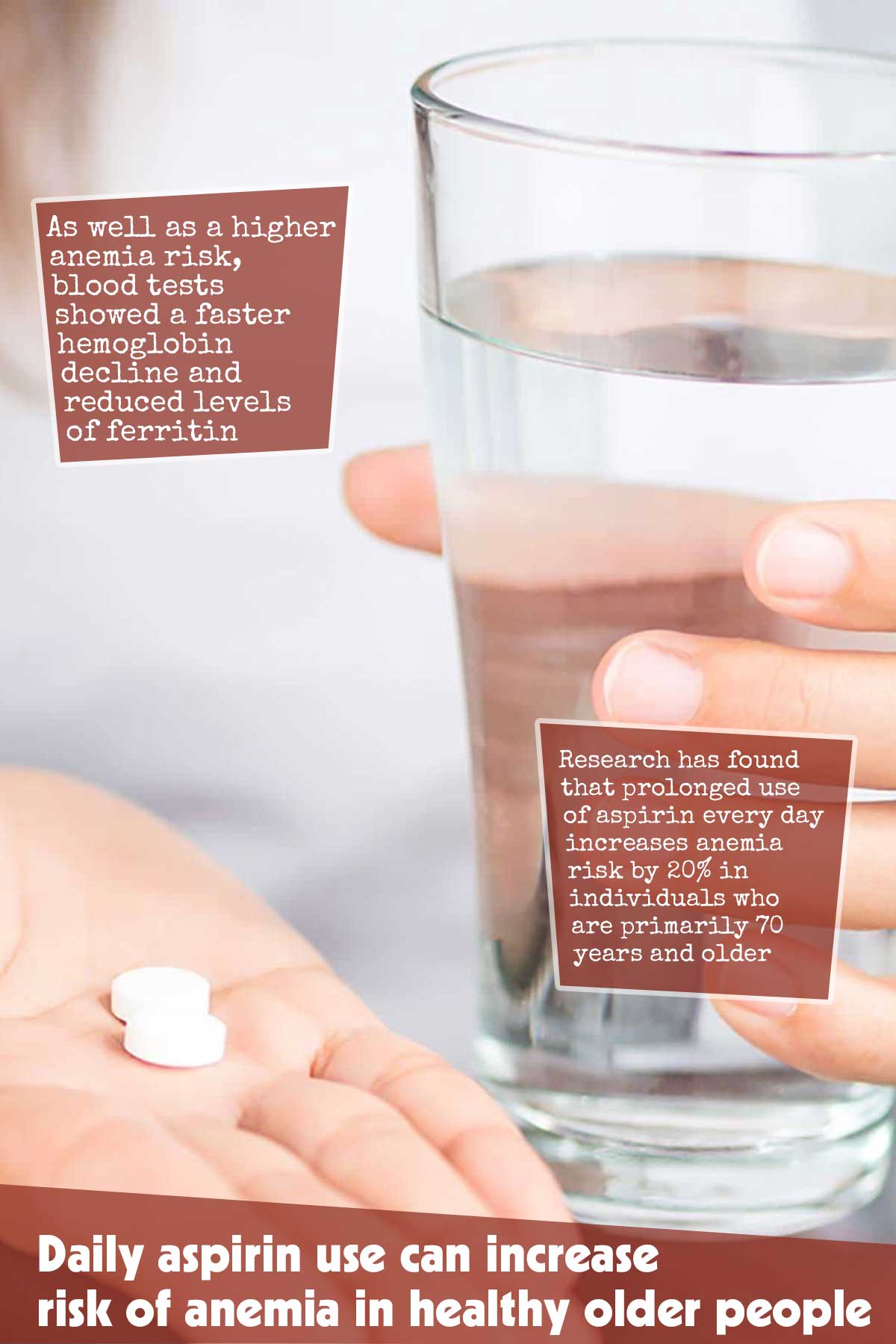Research analyzing data from the ASPREE study has discovered that prolonged use of aspirin every day increases anemia risk by 20% in individuals who are primarily 70 years and older.1✅ JOURNAL REFERENCE
DOI: 10.7326/M23-0675
The results suggest that habitual monitoring for anemia be looked at for older individuals making use of low-dose aspirin and that older individuals concerned about their health or meds should discuss their aspirin usage with their physician.
The study followed 18,153 older individuals who were initially healthy and incidents of anemia were recorded over 4.7 years on average.
The risk of anemia was seen to be 20% higher in the group taking aspirin in comparison to the group taking the placebo.
Half of the participants took a placebo and the other half took a low 100mg dose of aspirin every day in what was the biggest study to look into anemia in older individuals as part of the randomized controlled ASPREE trial (ASPirin in Reducing Events in the Elderly).
Older individuals commonly experience anemia, which potentially influences general function and increases cognitive problems, depressive symptoms, disabilities, and fatigue.
As well as a higher anemia risk, blood tests showed a faster hemoglobin decline and reduced levels of ferritin (an iron-carrying protein) in the group taking aspirin in comparison to the group taking placebo.
The researchers said although bleeding was one of aspirin’s known side-effect, few prior studies had investigated how the prolonged use of aspirin affected the progressive development of anemia in older individuals.
This study provides a better picture of the added risk of becoming anemic with the use of aspirin and the effect will probably be more significant in older individuals who have underlying diseases, which include kidney disease.
The data provides physicians insight into anemia risk from prolonged use of aspirin by their older patients.
Older individuals are generally more likely to become anemic and now physicians can potentially identify individuals at higher risk of anemia.




